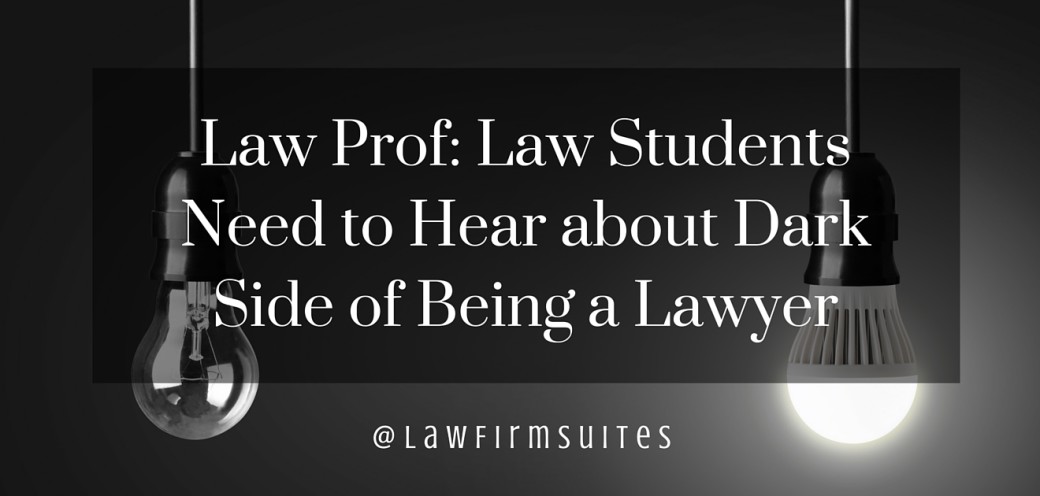Given the high rate of depression and suicide among lawyers, Charlotte School of Law professor advocates for better dialogue during law school about the dark side of being a lawyer.
According to a recent article in the Wall Street Journal, lawyers suffer from high rates of depression and even suicide. Some say that law schools could do a much better job of talking to future lawyers about the mental health risks associated with the profession.
The article quotes Brian Clarke, a Charlotte School of Law associate professor, who states that law schools tend to avoid dealing with the darker, more negative aspects of the profession. This does students a disservice by not preparing them for the very real risks that come with the territory.
Being Candid with Students About Depression Gives Them Coping Tools To Use Through Their Career
Law schools must bring the issue of mental illnesses out of the closet for future hopeful lawyers Click To TweetBy being more candid, Clarke says, law students can begin to develop coping mechanisms that will help them overcome challenges throughout their careers.
“Given that today’s depressed law students will, more likely than not, be tomorrow’s depressed lawyers, law schools and the legal professoriate must bring the issue of mental illness out of the closet and into the open,” writes Mr. Clarke. “We must do more to educate our students about mental illness and remove the stigma attached to it.”
According to the WSJ, Mr. Clarke had his own close call with depression years ago. He recalls how he would have taken his own life had he not sought proper medical treatment and counseling.
Professors Sharing Own Experience with Depression
Law students today are faced with many challenges and it is not uncommon to see taxing end of term stressors taking a mental toll on these students. Brian Clarke does what he can to maintain an open and candid approach to discussing mental illness and depression with his students. As his classes approach final exams and papers, he puts his class on hold and tells the story of his own personal battle with depression.
Explaining Some of the Many Challenges to Expect in the Practice
He also makes a point of talking to students about the many challenges associated with practicing law that aren’t included in textbooks or coursework. Things such as taking on the emotional weight of clients’ problems, the amount of competitiveness, billing difficulties, and even unrealistic lifestyle expectations are all things that can take a heavy toll on new graduates if they aren’t adequately prepared.
As this issue grows, we will undoubtedly see more and more professors taking this approach. Truly, it is the only thing that makes sense given the circumstances. While many law schools already offer mental health programs, the shortcomings present in them make it far too easy for students to disconnect and tune out. With the high rates of depression and suicide found in the legal profession, something must be done in order to better prepare future lawyers.
Says Mr. Clarke in the article: “Every single student I have ever talked to about these issues has appreciated…my openness and honesty.”
Students respond well to candor about the dark side of being a lawyer. Not only that, but they deserve to get the full picture of what exactly they are getting into. That means schools may need to spend more time discussing the risks, challenges, and downsides of the profession.


